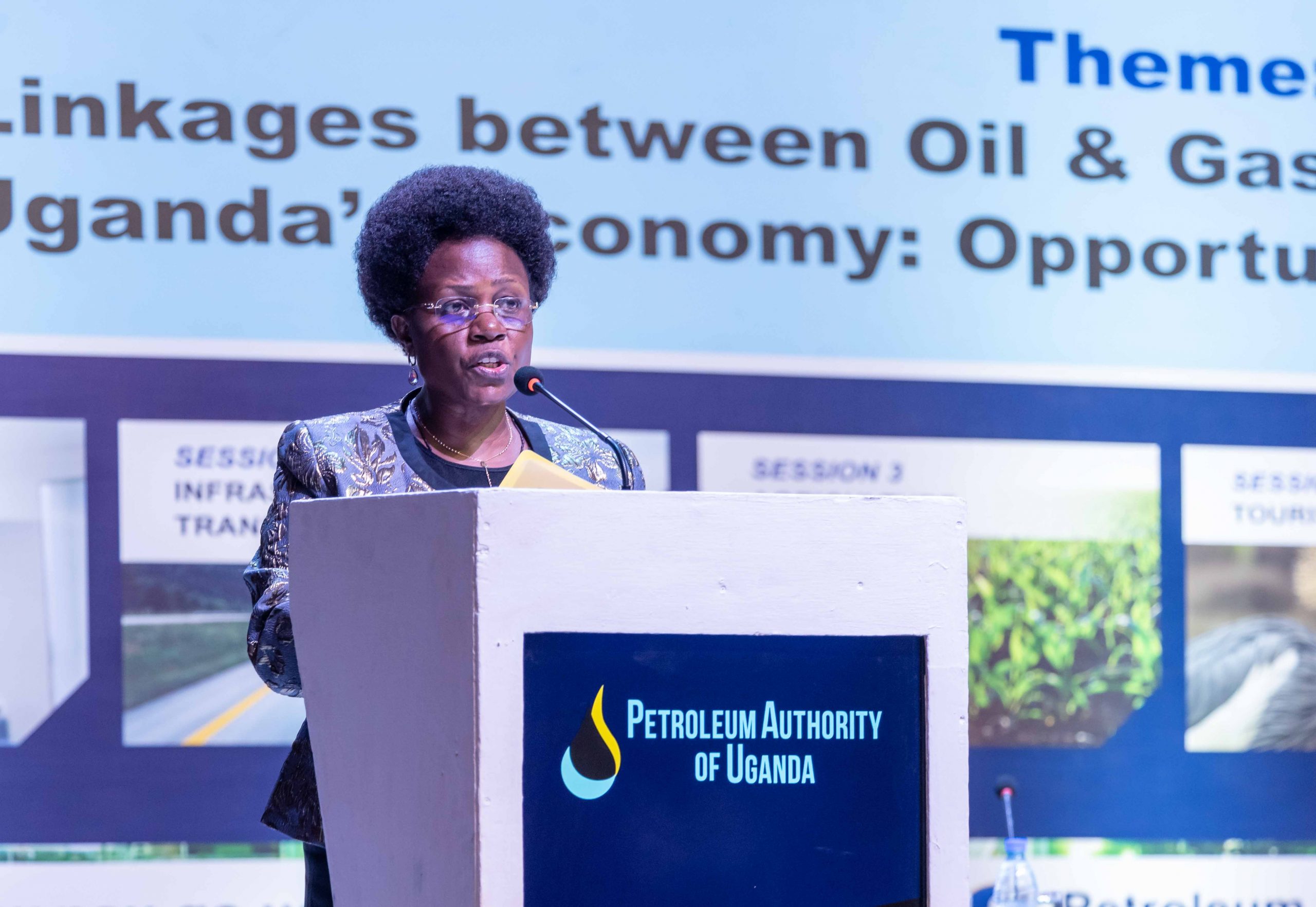advertisement
Oil and Gas National Content Conference Rooting For Technology
National conference by the Petroleum Authority of Uganda concludes The 2nd National Content Conference, organized by Petroleum Authority of Uganda…

National conference by the Petroleum Authority of Uganda concludes
The 2nd National Content Conference, organized by Petroleum Authority of Uganda (PAU) was concluded on the 18th of March at Kampala Serena Hotel, with a call on stakeholders to promote technical knowhow in the field of oil and Gas, if Uganda is to realize speedy economic development. The conference resolved to among others; integrate market and Information systems (IT), participating in quarterly skills development dialogues and emphasize gender mainstreaming in vocational training to facilitate equitable gender participation in the oil and gas sector.
Emphasis was put on training of Heavy Goods Vehicles (HGVs) Drivers and Instructors, where a total of 2, 500 HGVs Drivers will be required in the three projects of Tilenga, Kingfisher Development Area (KFDA) and East Africa Crude Oil Pipeline (EACOP). A total of 1200 Equipment Operators will be required, where only 200 Heavy Goods Vehicles Drivers and 20 Instructors have so far been trained, according to the Conference’s conclusion remarks.
advertisement
Hon. Dr. Mary Gorreti Kitutu, the Minister of Energy and Mineral Development re-echoed the need to have local Ugandan Companies awarded contracts in the Oil and Gas Sector ahead of their foreign counterparts. “Just like you have heard other leaders root for their countries first, Ugandan Companies should be considered first in every contract awarded in the Oil and Gas Sector. Uganda should come first in everything,” stressed the minister.
Dr. Kitutu also pointed out that the Minerals, Oil and Gas sector has been prioritized among the sectors with the greatest multiplier effect on the economy as detailed in the National Development Plan III. The other sectors include tourism, agriculture, infrastructure and human capital development. “In line with the goal of the National Oil and Gas Policy for Uganda of using the country’s oil and gas resources to contribute to early achievement of poverty eradication and to create lasting value to society, cross-sectoral linkages is considered a key component in the management of the sector that will bring inclusive growth, ” added Dr. Kitutu.
She also revealed that her Ministry as the lead agency in the development of National Content has established a multi-sectorial Local Content Steering Committee responsible for overseeing the implementation of the Local Content Policy. The private sector is represented on the committee through the Association of Uganda Oil and Gas Service Providers. “The government is reviewing the principles for the establishment of the Local Content Fund which is meant to provide Ugandan businesses with affordable financing. All the required consultations will be undertaken during the establishment of the fund.”
advertisement
Ernest Rubondo, the Executive Director at the PAU, noted that the first National Content Conference held last year documented the progress made in National Content in the oil and gas sector and made recommendations on how to enhance national content in the sector. “The takeaways from last year’s conference which have continued to be taken forward are; supporting of enterprise development and building competitiveness, increasing of value retention in the aspects of procurement, and planning for certification and accreditation of training institutions in collaboration with Ministry of Education and Sports,” he said.
This year’s National Content Conference sought to enhance the agenda of going with others with the theme Linkages between Oil and Gas and Other Sectors of Uganda’s Economy: Opportunities and Challenges.
The implementation of the linkages between the oil and gas sector and the other sectors of the economy can be categorized into those which were defined and are currently under implementation, those that are being defined, and those yet to be described. Linkages under implementation include; land use planning, which was commenced in 2011, security, education and skills development, transportation and infrastructure. Linkages under definition include; tourism, health, housing, agriculture, financing and fiscal systems, and linkages yet to be described include diplomacy, and industry.
advertisement
In his closing remarks, Robert Kasande, the Permanent Secretary for the Ministry of Energy and Mineral Development in a speech read by Rubondo said the Conference has been able to discuss the various linkages between the seven sectors of Agriculture, Education, Health, Infrastructure and Transport, Land-use Planning, Tourism, and Financing. Opportunities and challenges highlighted, participants were urged to confidently take up these up and collaboratively work towards addressing them. Kasande also noted that much as several interventions had been undertaken by both government and the private sector, a lot more effort was needed on the way forward.